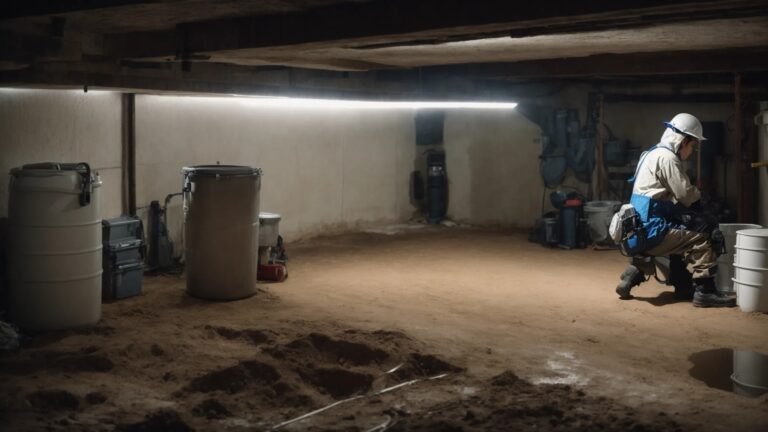How Dual Diagnosis Therapists Can Help
When someone struggles with both substance abuse and a mental health disorder, recovery becomes more complex. This is known as a dual diagnosis, and it requires specialized treatment that addresses both conditions simultaneously. A dual diagnosis therapist plays a crucial role in helping individuals understand the connection between their mental health and substance use, while guiding them through a recovery plan that supports long-term success.
At Rock View Recovery in Arizona, clients receive comprehensive care from professionals who specialize in dual diagnosis treatment. This mental health and addiction recovery center is designed specifically to serve men and women facing the challenges of co-occurring disorders. With personalized support and a team of experienced dual diagnosis therapists, Rock View Recovery helps clients build a healthier, more balanced life.
What Is a Dual Diagnosis Therapist?
A dual diagnosis therapist is a licensed mental health professional trained to work with individuals who have both a mental health condition and a substance use disorder. These therapists understand how the two issues interact and how to develop treatment plans that address the root causes of both.
For example, someone struggling with depression may use drugs or alcohol to cope with their emotional pain. Over time, the substance use worsens the depression, creating a cycle that’s difficult to break. A dual diagnosis therapist can help clients recognize this pattern, explore healthier coping strategies, and receive support through therapy, medication management, and addiction recovery programs.
Why Dual Diagnosis Treatment Is So Important
Many people who seek help for substance use also struggle with anxiety, depression, bipolar disorder, trauma, or other mental health concerns. Unfortunately, traditional treatment programs that focus only on addiction often overlook the underlying psychological factors that contribute to the problem.
Dual diagnosis therapy ensures that both conditions are treated at the same time, which leads to better outcomes. Without this approach, individuals may relapse more frequently, experience increased emotional distress, or feel that treatment is not addressing their full needs.
At a facility like Rock View Recovery, dual diagnosis therapists are part of a multidisciplinary team that creates a complete, evidence-based plan for recovery. This integrated care model helps clients regain stability and confidence, both during treatment and beyond.
How Dual Diagnosis Therapists Work with Clients
Dual diagnosis therapists use a variety of therapeutic techniques to support healing. This includes cognitive behavioral therapy, trauma-informed care, motivational interviewing, and relapse prevention planning. Each therapy session is designed to help clients better understand themselves, identify triggers, and develop tools for emotional regulation and healthy decision-making.
These professionals also coordinate care with medical providers, psychiatrists, and addiction specialists to ensure that clients have access to all necessary resources. In some cases, medication may be part of the treatment plan to manage mental health symptoms, especially if conditions like anxiety or bipolar disorder are present.
Working with a dual diagnosis therapist can help clients break free from the cycle of self-medication and uncover the reasons behind their substance use. This deeper understanding is often the key to lasting recovery.
The Role of Family in Dual Diagnosis Therapy
Family members often play a vital role in the healing process. Dual diagnosis therapists may include family therapy sessions as part of the treatment plan, helping loved ones learn how to support recovery while also caring for their own well-being.
Education is a major component of family involvement. By understanding the nature of co-occurring disorders, family members can develop realistic expectations, communicate more effectively, and foster a healthier home environment that supports long-term recovery.
Rock View Recovery offers family-focused resources and counseling to help rebuild trust and connection during treatment and aftercare.
Why Rock View Recovery Stands Out
Rock View Recovery is one of Arizona’s leading dual diagnosis treatment centers. Their programs are built specifically to support individuals facing drug and alcohol addiction alongside mental health conditions. With a focus on holistic healing and evidence-based care, Rock View Recovery has earned a reputation for excellence in the recovery community.
Clients receive personalized treatment plans tailored to their history, goals, and health needs. Whether someone is battling trauma, depression, anxiety, or another mental health concern, they receive care from trained professionals who understand the unique challenges of dual diagnosis recovery.
The facility offers residential treatment, outpatient services, and continuing care, making it easier for clients to transition between levels of support as they heal. The goal is long-term recovery—not just symptom management, but true, sustainable wellness.
Long-Term Success with the Right Support
Recovery doesn’t happen overnight. It requires time, support, and a structured plan. Dual diagnosis therapists provide the steady guidance needed to keep clients on track through the ups and downs of healing.
With the help of these professionals, individuals can rebuild relationships, improve their mental health, and create a future free from addiction. Having access to this level of care is essential, especially for those who have previously struggled to find lasting results in traditional rehab programs.
When to Seek Help
If you or someone you love is dealing with substance use and a mental health issue, don’t wait to seek help. Dual diagnosis therapy can make all the difference in achieving lasting recovery.
Warning signs that it may be time to reach out include:
- Using substances to cope with anxiety, depression, or trauma
- Frequent relapses after treatment
- Mood swings, irritability, or difficulty concentrating
- Isolation, loss of interest, or lack of motivation
- A history of both mental illness and addiction
Early intervention leads to better outcomes. The sooner you take the first step, the sooner recovery can begin.
Start Your Recovery at Rock View Recovery
Healing from co-occurring disorders requires expert care, compassion, and the right support system. At Rock View Recovery, clients work with dedicated dual diagnosis therapists who understand what it takes to recover from both substance abuse and mental health conditions.
If you’re ready to begin the journey toward wellness, Rock View Recovery is here to help. Reach out today and discover a path forward that is grounded in understanding, built on trust, and focused on lasting transformation.


















